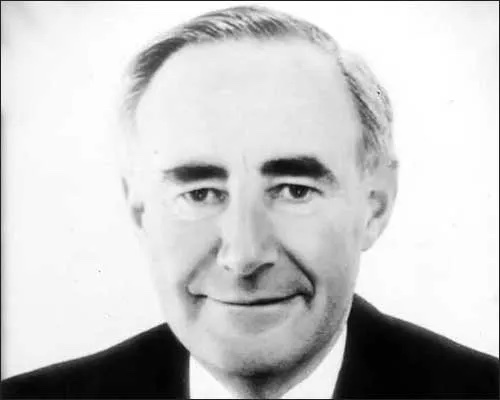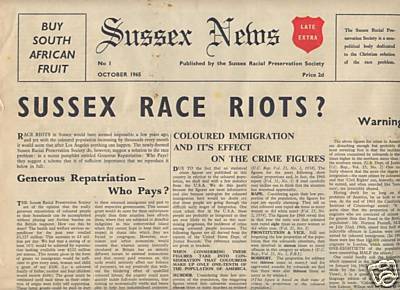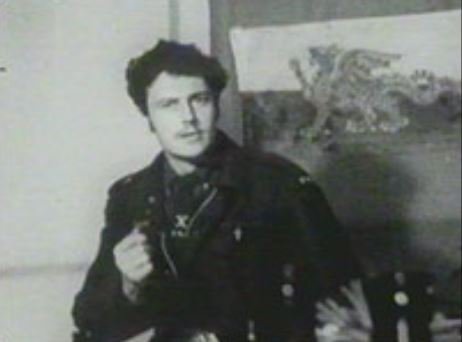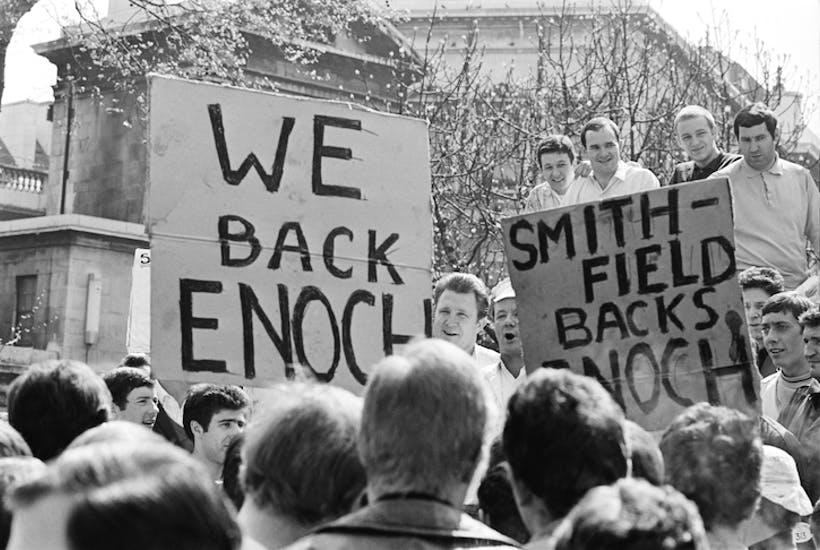
This morning’s publication of a large batch of formerly secret files from the security service MI5 does not this time include any that deal specifically with the history of British nationalism. As regular H&D readers will know, several volumes of MI5 files on the British national socialist Colin Jordan were published in 2017 and extensively analysed in issues 82-86 of our magazine.
We know that MI5 files exist on several other leading postwar nationalists including the National Front’s founder A.K. Chesterton and its most famous leader John Tyndall – but the six volumes so far published on Chesterton take his story only up to 1953 (fourteen years before the formation of the NF), and none of the files on JT have yet been published, though the 20th anniversary of his death is approaching later this year.
Nevertheless, the large number of files released at the National Archives in Kew today include a great deal of historically interesting material, and our assistant editor will be reporting on some highlights at his Real History blog – once he has had a day or two to read them!
One ironic reference among today’s releases is contained in a document from 1964, written by MI5’s Director-General Sir Roger Hollis following his first meeting with the newly elected Labour Prime Minister Harold Wilson.
This meeting reaffirmed MI5’s directive, which emphasised that its work ‘had no connection with Party political matters’ – by which was meant of course the mainstream parties. But its ‘counter-subversive’ role meant investigation not only of foreign spies – and to some extent ‘terrorists’, though in 1964 there were few serious terrorists around since the IRA was quiescent – but also investigation of ‘Communists, Fascists, Trotskyists and Anarchists’.
The new Prime Minister commented that the Labour Party had probably studied the Trotskyist problem even more than MI5 had, but Wilson then “suggested that the Fascists might now be slightly on the upgrade with the exploitation of the colour problem.”
Within a short time, Wilson’s government was to criminalise ‘racism’, and almost sixty years later we still don’t know the full extent to which this brought even electorally-focused racial nationalists such as the NF and later BNP within MI5’s definition of ‘subversives’.
One fragment from this morning’s file release shows that in April 1968 Wilson asked MI5 about the famous Lewes trial of four Racial Preservation Society activists who were acquitted on charged of ‘inciting racial hatred’. By the time of this trial, the RPS had mostly been absorbed into the NF, whose chairman A.K. Chesterton helped organised the defence of the men in the dock. These included Alan Hancock, the Brighton printer and father of Tony Hancock, whose printing activities for a wide range of nationalists will be well known to many H&D readers, and Ted Budden, who went on to be a prominent NF activist and candidate.
One of the defence witnesses in that Lewes trial was Robert Gayre, editor of Mankind Quarterly, a magazine that discussed racial questions on a scientific basis and which was later edited and published by Dr Roger Pearson (for whom our editor Mark Cotterill worked in Washington DC).
It’s important to note that the 1960s version of UK race laws allowed for defence on the basis that the ‘racist’ comments were true. The law was later changed so that, as many readers will know, truth is now no defence. Moreover, the 1960s law required prosecutors to prove intent to ‘stir up racial hatred’: again, the law was changed so that proof of intent is no longer required.
After the Lewes acquittals, Wilson asked MI5 whether the defendants had been responsible for distributing an anonymous anti-Wilson magazine called The Privateer. This magazine strongly supported the pro-White Rhodesian govenment with which Wilson was in bitter and prolonged conflict.
Wilson’s implication was that the Rhodesian intelligence service (and/or its South African equivalent) was in some way promoting the British ‘far right’.
MI5 replied that while copies of issue 3 of The Privateer had been posted in the Brighton & Hove area, where the RPS defendants lived, they had no evidence connecting them to its distribution.
After 500 London dockers marched to Downing Street on 23rd April 1968 in support of Enoch Powell (who had delivered his famous ‘rivers of blood’ speech three days earlier), Wilson again asked MI5 to investigate.
MI5 reported that the dockers’ march was triggered by “an apparently spontaneous meeting” at 10 am that morning. Their leaders included Harry Pearman, who was quite well known as an anti-communist and was at one time influenced by Moral Rearmament, a controversial anti-communist crusade led by the American preacher Frank Buchman and the former England rugby captain and ex-Mosleyite Peter Howard.
Pearman presented the dockers’ petition and met with Powell at Parliament. Communists among the dock unions had tried and failed to push an anti-Powell line, and on 24th April more than 500 dockers staged a one-day protest strike to demonstrate their support for Powell’s anti-immigration line.
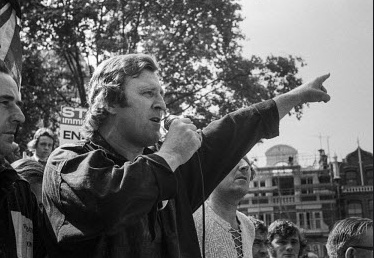
Later that day 300 porters from Smithfield meat market marched to Parliament carrying pro-Powell banners. One of the two organisers, as MI5 reported, was Danny Harmston, who was known to MI5 since 1962 as a Mosley supporter. He had been a candidate for Mosley’s Union Movement (which by that time was campaigning as the National Party of Europe) in Islington SW at the 1966 general election, but MI5 believed that apart from Harmston’s personal involvement, there didn’t seem to be any organised political action behind the meat porters’ march.
A more unusual question that MI5 had to answer in April 1968 concerned not racial nationalism, but Welsh and Scottish nationalism, which was just beginning its rise and evidently was starting to worry the ever-paranoid Wilson. Plaid Cymru leader Gwynfor Evans won the Carmarthen by-election in July 1966 to become the first ever Welsh nationalist MP, and the party went on to scare Labour with huge swings at two further parliamentary by-elections at Rhondda West in March 1967 and Caerphilly in July 1968.
Meanwhile the Scottish National Party (whose sole Westminster MP had sat for just a few months in 1945) was also resurgent, polling 28% at the Glasgow Pollok by-election in March 1967, and winning the Hamilton by-election in November 1967.
Bizarrely, Wilson asked MI5 whether the French government was secretly involved in promoting Welsh and Scottish nationalism! MI5 replied that they had no evidence of any such connection and found it very unlikely. Welsh nationalists in particular did have cross-Channel connections with their counterparts in Brittany, principally under the aegis of the Celtic Youth Congress, formed in October 1965, and its parent body the Celtic League. But even this had at most 200 members, mostly in Wales, and in any case Breton nationalists would, MI5 pointed out, be most unlikely to be used as a conduit by the government in Paris.
MI5 understood that the Communist Party of Great Britain was taking some interest in Welsh and Scottish nationalism, but again, this was not likely to recommend such links to Charles de Gaulle’s conservative French government.
Presumably Wilson’s paranoia was related to De Gaulle’s second veto on UK membership of the Common Market – the French President had announced in November 1967 that he would refuse to allow British entry into what is now the EU.
On further investigation, MI5 reported on claims by Julian Cayo-Evans, self-styled leader of the Free Wales Army, that his group had links to separatists in Quebec who had given weapons and explosives training to Welsh militants. MI5’s Director-General wrote that “Cayo-Evans is given to exaggeration in the interests of publicity and we are inclined to treat his claim with reserve.”
MI5 repeated that they were continuing to monitor possible links between the French government and “Welsh and Scottish extremist elements”, but added that they had no evidence of links between any German political groups and such ‘nationalists’/separatists.
H&D will continue to monitor document releases from the National Archives and reports will appear here, in more detail in our magazine, and at the Real History blog run by our assistant editor.

